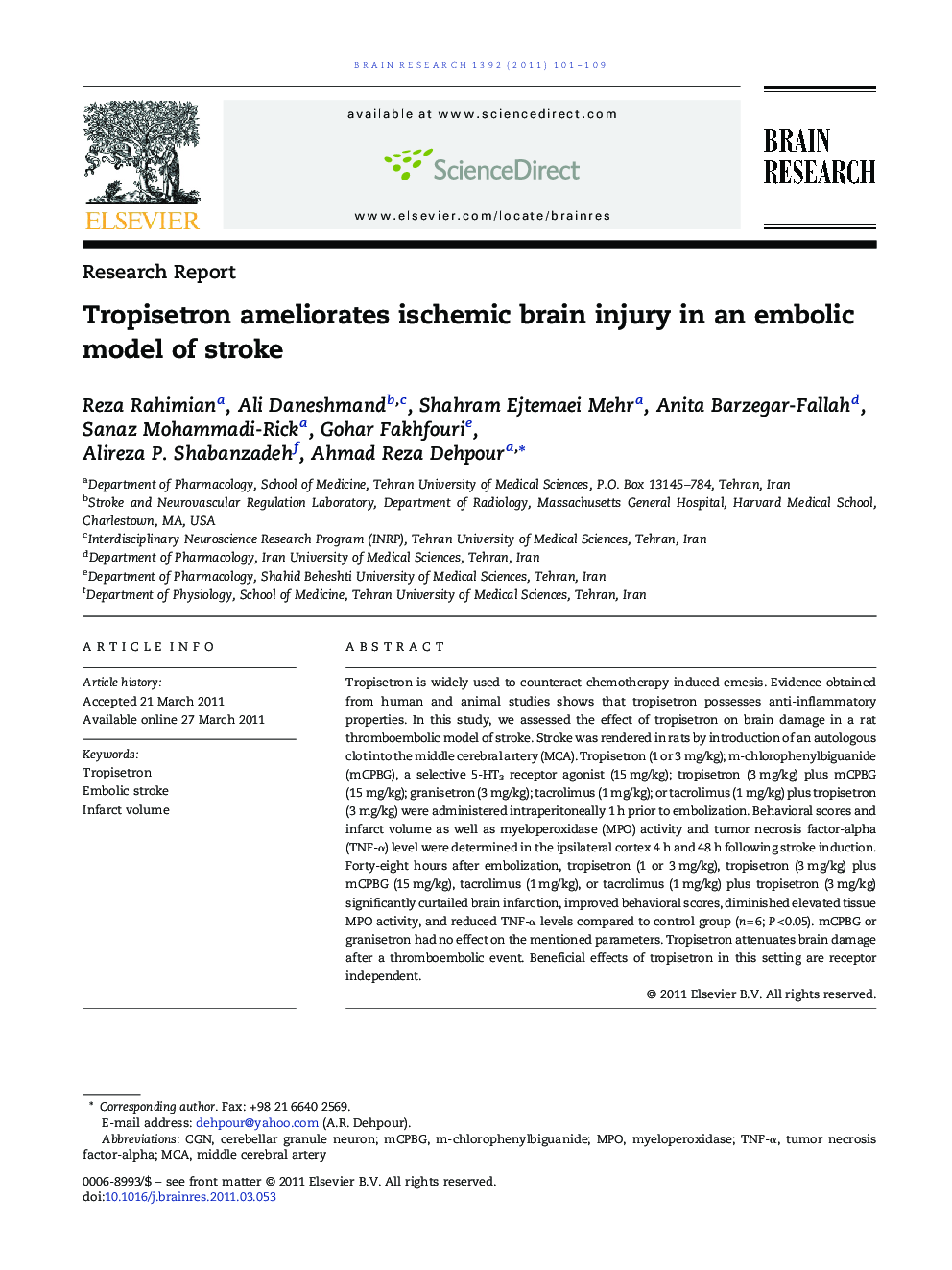| Article ID | Journal | Published Year | Pages | File Type |
|---|---|---|---|---|
| 4325932 | Brain Research | 2011 | 9 Pages |
Tropisetron is widely used to counteract chemotherapy-induced emesis. Evidence obtained from human and animal studies shows that tropisetron possesses anti-inflammatory properties. In this study, we assessed the effect of tropisetron on brain damage in a rat thromboembolic model of stroke. Stroke was rendered in rats by introduction of an autologous clot into the middle cerebral artery (MCA). Tropisetron (1 or 3 mg/kg); m-chlorophenylbiguanide (mCPBG), a selective 5-HT3 receptor agonist (15 mg/kg); tropisetron (3 mg/kg) plus mCPBG (15 mg/kg); granisetron (3 mg/kg); tacrolimus (1 mg/kg); or tacrolimus (1 mg/kg) plus tropisetron (3 mg/kg) were administered intraperitoneally 1 h prior to embolization. Behavioral scores and infarct volume as well as myeloperoxidase (MPO) activity and tumor necrosis factor-alpha (TNF-α) level were determined in the ipsilateral cortex 4 h and 48 h following stroke induction. Forty-eight hours after embolization, tropisetron (1 or 3 mg/kg), tropisetron (3 mg/kg) plus mCPBG (15 mg/kg), tacrolimus (1 mg/kg), or tacrolimus (1 mg/kg) plus tropisetron (3 mg/kg) significantly curtailed brain infarction, improved behavioral scores, diminished elevated tissue MPO activity, and reduced TNF-α levels compared to control group (n = 6; P < 0.05). mCPBG or granisetron had no effect on the mentioned parameters. Tropisetron attenuates brain damage after a thromboembolic event. Beneficial effects of tropisetron in this setting are receptor independent.
Research Highlights► Tropisetron pretreatment exerts salutary effects in a rat model of embolic stroke. ► Improvement observed in neurological scores, TNF-α level, infarct size and edema. ► The selective 5-HT3 receptor agonist mCPBG did not alter salutary effects. ► Beneficial effects of tropisetron in this setting are receptor independent.
